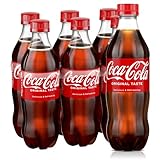
In today’s fast-paced world, maintaining a healthy weight can seem like an elusive goal. With countless diets and exercise routines flooding the market, it’s easy to become overwhelmed and discouraged. However, a little-known secret may hold the key to achieving your desired physique: carbonated beverages. These effervescent drinks, commonly referred to as soda or pop, have recently gained attention for their potential slimming effects.
Unlock the Potential of Soda to Shed Pounds
While the direct association between soda consumption and weight loss may seem counterintuitive, recent research suggests it may be worth investigating. Scientists have hypothesized that certain ingredients within carbonated beverages possess the ability to accelerate metabolic processes, ultimately leading to a reduction in body mass. Consequently, this has sparked renewed interest in the potential weight management benefits of soda.
Embrace the Bubbles for a Desirable Figure
One intriguing theory proposes that carbonation can increase satiety levels, thus reducing overall calorie intake. This concept suggests that the fizziness of these beverages contributes to feelings of fullness, preventing overeating and snacking throughout the day. Additionally, proponents of the soda-to-slim strategy argue that the stimulating effect of carbonated drinks on the taste buds can help curb cravings for high-calorie foods, leading to a more balanced diet.
Understanding the Effect of Coca-Cola on Weight Loss: Debunking Misconceptions and Revealing Truths
Individuals seeking to shed excess weight often wonder about the potential impact of consuming Coca-Cola on their weight loss goals. While there are numerous misconceptions and myths surrounding this topic, it is essential to delve into the verifiable truths to gain a comprehensive understanding of the connection between Coca-Cola consumption and weight management.
Exploring the Relationship Between Coca-Cola and Metabolism
One prevalent myth asserts that Coca-Cola directly accelerates metabolic processes, thus aiding in weight loss. However, scientific evidence suggests that this notion lacks substantial support. Although Coca-Cola does contain caffeine, which can temporarily rev up metabolism, its effect is not significant enough to create a noticeable impact on weight loss efforts. Consequently, it is crucial to approach this claim with caution and maintain realistic expectations.
The Role of Coca-Cola in Caloric Intake and Weight Gain
A misconception often surrounds the notion that Coca-Cola alone is solely responsible for weight gain. While it is true that excessive consumption of sugary beverages, including Coca-Cola, can contribute to caloric overload and subsequent weight gain, it is essential to consider individual dietary habits and overall caloric intake. Regularly consuming Coca-Cola in moderation, as part of a balanced diet, is unlikely to significantly impact weight loss progress. However, it is important to be mindful of overall caloric consumption and ensure that Coca-Cola fits within one’s daily energy needs.
Emphasizing the Importance of a Holistic Approach to Weight Loss
Weight loss is a multi-faceted journey that encompasses various factors, such as diet, physical activity, and overall lifestyle choices. It is crucial to understand that relying solely on Coca-Cola or any single factor as a “magic solution” for weight loss is unrealistic and ineffective. Instead, individuals should adopt a holistic approach, incorporating a balanced diet, regular physical activity, and mindful consumption of beverages, including Coca-Cola, to achieve sustainable weight loss goals.
In conclusion, it is necessary to dispel misconceptions surrounding the impact of Coca-Cola on weight loss. While Coca-Cola consumption may have some potential effects on metabolism and caloric intake, its significance in the overall weight loss journey should not be overstated. Understanding the complex relationship between Coca-Cola and weight management is crucial to implement healthy lifestyle choices and achieve sustainable weight loss outcomes.
The Impact of Coca-Cola on Appetite Suppression and Metabolism Enhancement
In the realm of promoting a leaner physique and vibrant metabolism, one substance has garnered particular attention for its potential role in appetite suppression and metabolic boost. This section aims to explore the possible effects of Coca-Cola on curbing hunger and increasing the body’s ability to burn calories efficiently. While the precise mechanisms behind these purported effects remain to be conclusively determined, there is evidence suggesting a relationship between Coca-Cola consumption and appetite regulation as well as metabolic enhancement.
A potential explanation for the connection between Coca-Cola consumption and appetite suppression lies in the drink’s composition. Coca-Cola contains various ingredients, including caffeine, which has been associated with appetite reduction in some studies. Additionally, the carbonation present in the beverage may contribute to a sense of fullness, potentially leading to a decrease in food intake. By exploring these fundamental factors, we can gain insights into how Coca-Cola may potentially act as an appetite suppressant.
| Potential Mechanisms of Appetite Suppression | Possible Effects on Metabolism |
|---|---|
| Stimulation of the central nervous system | Increase in thermogenesis |
| Modulation of hormonal signaling | Promotion of fat oxidation |
| Influence on ghrelin levels | Enhancement of energy expenditure |
Furthermore, the potential metabolic benefits associated with Coca-Cola consumption may be attributed to its impact on various physiological processes. One hypothesized mechanism involves the stimulation of the central nervous system, resulting in an increase in thermogenesis. This upregulated metabolic activity could potentially enhance the body’s calorie-burning capabilities and contribute to weight management.
Other proposed pathways include the modulation of hormonal signaling, particularly related to appetite-regulating hormones such as ghrelin. By influencing these hormones, Coca-Cola might play a role in appetite control and subsequent calorie intake. Additionally, the promotion of fat oxidation and the enhancement of overall energy expenditure are additional mechanisms through which Coca-Cola’s consumption might support a more efficient metabolism.
While the specific effects of Coca-Cola on appetite suppression and metabolism remain an area of ongoing scientific investigation, these theoretical mechanisms provide valuable insights into its potential impact. However, it is important to note that individual responses to Coca-Cola may vary, and overall dietary patterns and lifestyle factors should always be considered when addressing weight management and overall health.
Scientific Research on the Impact of Coca-Cola on Body Composition
In this section, we will delve into the scientific findings regarding the effects of consuming Coca-Cola on a person’s body composition. Researchers have conducted numerous studies to understand the potential impact of Coca-Cola consumption on weight and body composition.
Impact on Weight Gain
Scientific studies have investigated the relationship between Coca-Cola consumption and weight gain. These studies have shown that regular and excessive intake of Coca-Cola can contribute to weight gain and obesity. The high sugar content in Coca-Cola can lead to an increase in caloric intake without providing essential nutrients, which can contribute to an imbalance in energy and result in weight gain over time.
Body Fat Accumulation
Furthermore, research has explored the impact of Coca-Cola consumption on body fat accumulation. These studies have demonstrated that the regular consumption of Coca-Cola can contribute to an increase in visceral fat, which is the dangerous fat that surrounds vital organs in the abdominal area. The high sugar content in Coca-Cola can stimulate the production and storage of fat in the body, leading to an increase in overall body fat percentage and an unfavorable alteration in body composition.
It is worth noting that while this section focuses on the scientific research on the impact of Coca-Cola on body composition, individual results may vary depending on various factors such as overall diet, lifestyle, and genetics. It is recommended to consult with a healthcare professional for personalized advice and guidance.
In conclusion, the scientific studies discussed in this section highlight the potential negative effects of regular Coca-Cola consumption on weight gain and body fat accumulation. Understanding these findings can help individuals make informed choices about their beverage choices and prioritize a balanced diet for optimal body composition.









